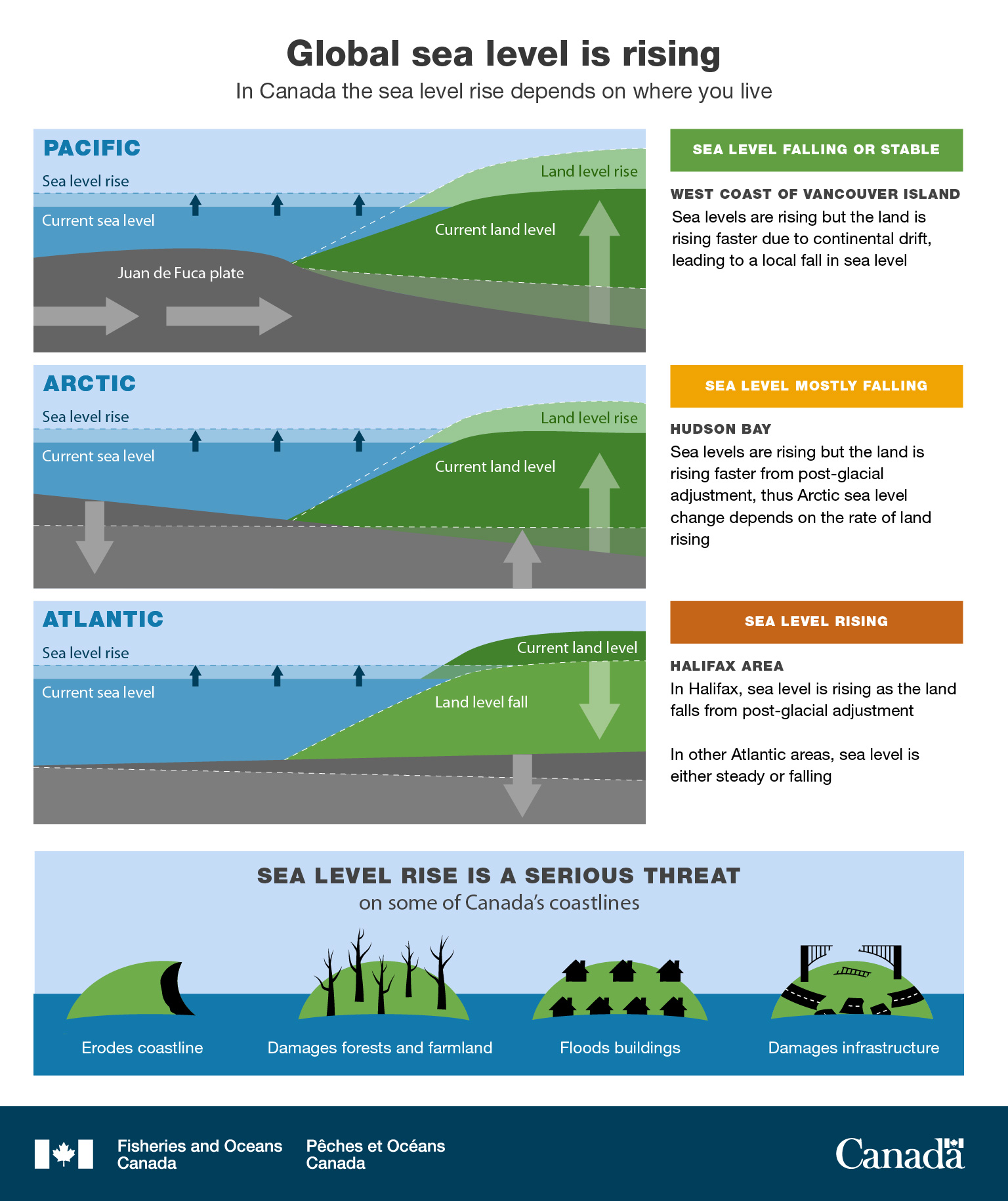Global sea level is rising

Description: Global sea level is rising
This diagram shows that the amount and direction of sea level change around Canada's coastlines varies because of the influence of local geological processes. Global sea level is rising. In Canada the sea level rise depends on where you live Sea levels are rising globally as a result of increased freshwater input from melting glaciers and ice sheets and the expansion of warming ocean waters. Rising oceans can erode coastlines, damage ocean habitats such as kelp and eelgrass, flood land, and batter buildings and wharfs during storms.
Sea level rise is complex as it varies markedly among Canada's coastlines, largely as a result of localized geological processes such as continental drift and post-glacial adjustment. For example, on the west coast of Vancouver Island tectonic forces are raising the level of the land faster than global sea level rise, resulting in sea levels falling locally. Sea level is also falling in parts of the Arctic, such as in Hudson Bay, because the land is rising in response to the retreat of the last glacial ice sheet. On the other hand, rising sea levels are occurring faster than average in the Halifax area as the land there is falling.
Along the Pacific coast sea level is falling or stable. The example from the west coast of Vancouver Island shows that sea levels are rising but the land is rising faster due to continental drift leading to a local fall in sea level. The Juan de Fuca plate is pushing under the continent causing the land to rise.
In the Arctic, sea levels are mostly falling. Sea levels are rising but the land is rising faster from post-glacial adjustment. Arctic sea level change depends on the rate of land rising.
In the Atlantic, Halifax sea level is rising as the land falls from post-glacial adjustment. In other Atlantic areas, sea level is either steady or falling.
Sea level rise is a serious threat on some of Canada's coastlines. It can erode coastline, damage forests and farmland, flood buildings, and damage infrastructure
Text
Global sea level is rising
In Canada the sea level rise depends on where you live
Sea level rise is a serious threat on some of Canada's coastlines
- Erodes coastline
- Damages forests and farmland
- Floods buildings
- Damages infrastructure
Sea level falling or stable
West coast of Vancouver Island Sea levels are rising but the land is rising faster due to continental drift, leading to a local fall in sea level
Juan de Fuca plate
Sea level rise
Land level rise
Sea level mostly falling
Hudson Bay Sea levels are rising but the land is rising faster from post-glacial adjustment. Arctic sea level change depends on the rate of land rising.
Current sea level
Sea level rise
Current land level
Land level rise
Sea level rising
Halifax In Halifax, sea level is rising as the land falls from post-glacial adjustment. In other Atlantic areas, sea level is either steady or falling.
Sea level rise
Land level fall
Related links
- Date modified: